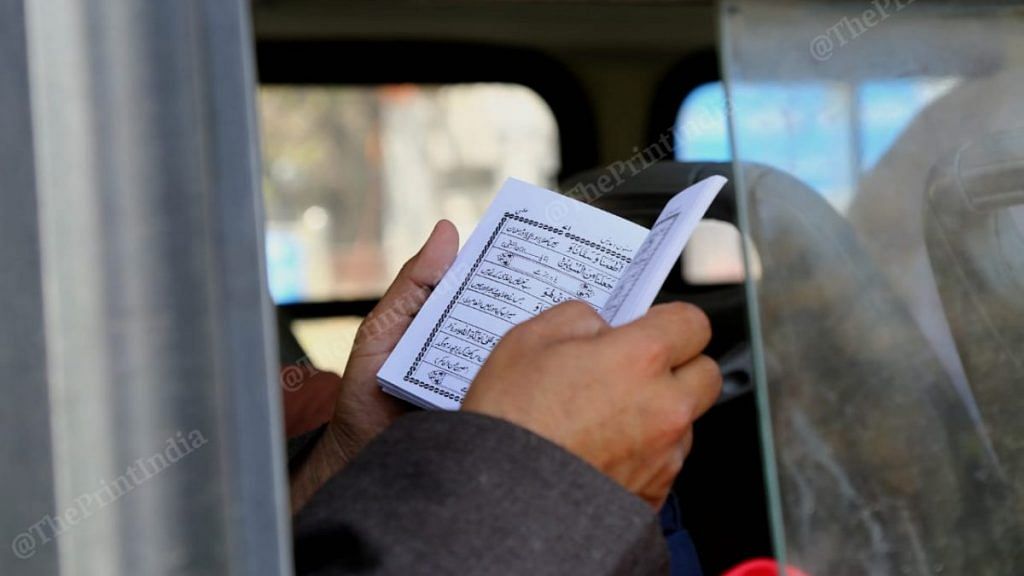Tablighi Jamaat is an Islamic religious reform movement. It has emerged as one of the most dominant forms of religiosity in postcolonial India. This “loosely organized” organization offers us a very different form of Islam. The adherents of the Jamaat are encouraged to avoid all references to politics and asked to devote themselves for what is called din ki mehnat (struggle to consolidate faith)….
….Maulana Mohammad Yusuf, the second Amir (head) of Tablighi Jamaat and the successor of Mohammad Ilyas, describes Dawat-e-Islam as an end in itself. Defining the meanings of Dawat, he says: ‘…the manner in which Prophet Mohammad lived his life and worked for the deen of Allah is tabligh’.
It does not, however, mean that this simple and uncomplicated notion of Dawat-e-Islam is entirely purposeless. Yusuf reminds us: ‘Roman and Persian empires were like the webs of spider at the time of the Prophet Muhammad. The Prophet worked on the commitment building of Muslims and prepared pure believers. Because of the share presence of these pure believers, Allah cleaned the webs of Rome and Persia with his azab (punishment). This is eventually going to happen with superpowers of our time: Russia and USA.
Also read: Tablighi Jamaat congregation and how religion has been the ‘super spreader’ of coronavirus
Deen (religion), in this framework of Dawat, is juxtaposed with duniya (world). It is argued that Deen is an expression of faith and commitment in Allah, which can only be completed by absorbing the message of the Prophet. Muslims need to consolidate Deen if they want to get success in this life and the life after death.
Thus, Muslims should not endeavor for establishing Islamic dominance (in direct political terms) in this world. Instead, they should act (Amal) to consolidate Deen through Dawat-e-Islam: inviting others to Islam. Yusuf claims:
‘…the purpose of Tabligh is not to disseminate any particular form of knowledge; instead, the aim is to breathe life into the very idea of Deen that the Prophet brought in and made it actable for the prosperity of Muslims. If this very idea triumphs as a part and parcel of everyday life, the Almighty would shower his kindness on us’.
To understand the nature of this ‘Dawat for Deen’, one has to unpack the Tablighi Jammat’s famous six principles:
- Kalima (profession of faith)
- Salat (five times prayers or namaz)
- Ilm-o-Ziikr (knowledge and remembrance of God)
- Ikram -i Muslim (respect of every Muslim)
- Ikhlas-i niyyat (sincerity of intention)
- Tafrigh-i waqt (sparing time).
The first three principles focus on the universally accepted norms of Islamic religiosity. One has to have a faith in Kalima; one must offer salat five times a day; and, one must recite the Qur´an (and for that matter any other religious text).
However, the last three principles are quite innovative, which underlines the argument Yusuf makes. For instance, the principle of Ikram-i Muslim calls upon Muslims (and particularly those who are involved in Jamaat’s work) to show respect to all forms of Islamic religious practices and avoid those actions, which may lead to religious arguments and confrontations.
Also read: What is Tablighi Jamaat? Organiser of Delhi event behind spike in India’s Covid-19 count
The principle of ikhala-e-niyyat is about individual’s intention to participate in the activities of Jamaat. If the intention is sincere, it is argued, Allah would help the person to translate intentions into action. The last principle, Tafrigh-i waqt (sparing time), is an extension of purity of intention principle, which tells us how to put words and intentions into action.
What is really striking in this schema is the focus on Amal (actions). Jamaat makes a persuasive argument to abandon the given meaning of Islam as an individual-centric spiritual experience. Instead, it offers a systematic plan of action to get involved collectively in the world affairs for preparing Muslims for hereafter. This unequivocal appeal for religious transformation is an appropriate example of ‘propagation of religion’ in strictly Indian legal-constitutional sense. In fact, this form of Dawat-e-Islam moves away from all possible kinds of social and/or political interventions and goes for the protection of Iman of those who have already recognized themselves as Muslims!
